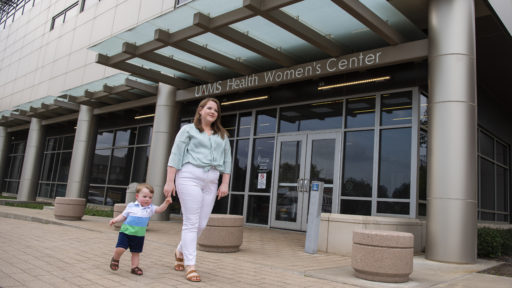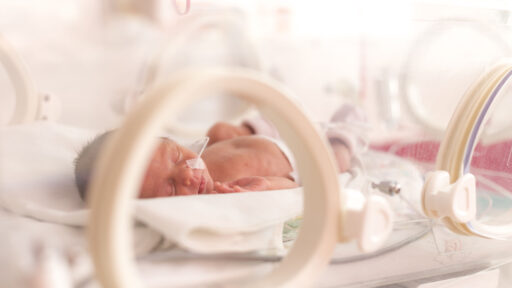Description
Mother’s milk protects babies from a wide range of conditions and illnesses, but there are loads more benefits for moms who breastfeed.
In this video, Dr. Misty Virmani explains the unique benefits of breastfeeding for both baby and mother.
Video Player
Transcript
For their baby’s health, I like to emphasize that it’s important to their baby to provide some immune protection because babies have functional but rather immature immune systems. That means that they haven’t been exposed to a lot of the world. And by being fed mom’s breast milk, they get some exposure to antigens and exposures in mom’s world. And that gives some very specific protection from a variety of infections, even from allergies and development of potential allergic reactions and some chronic diseases that are related to allergies later in life.
It also helps protect babies from sudden infant death. The way it does this is not really clear right at this time. It probably has a lot to do with infection and the immune system and how it functions. But it also has something to do with the innate relationship between a mom and her breastfed baby, that she has an emotional and neurocognitive connection to the baby. And she arouses and responds more readily to the baby’s signs of distress or to lack of motion or movement from the baby. And there have been a lot of research studies, actually, that have shown that some of these moms who are breastfeeding or moms that are breastfeeding compared to formula-fed moms wake up a lot more frequently and arouse a lot more frequently from sleep to check on their baby and see what their baby’s doing than moms who are formula feeding. And that may have some impact on reducing the risk of sudden infant death. But really, probably more specifically related to immune capacity and protection from infection
One of the questions that doesn’t really get asked questions is what are your breastfeeding goals? What do you want out of your breastfeeding relationship? Because you need mom to want what you want for her child, you need to get her engaged in wanting the same things and know why it’s important.
Breastfeeding for at least three months actually substantially reduces the risk of sudden infant death. Breastfeeding for six months can reduce the risk of sudden infant death by as much as 50%. So, not subtle decreases.
The other benefits to baby and to mom of extended periods of time breastfeeding include things like reducing risks of ear infections, leukemia, lymphoma, diarrhea, respiratory illnesses. To some extent, it reduces the baby’s chance of developing obesity and, for some children, even coronary artery disease later in life, particularly if that runs in their family. The longer you breastfeed, the less chance that they’re going to have severe asthma. And I say this because I never want a physician to go to a mom and say, “If you breastfeed, they won’t have asthma,” because that’s not true. If you have a strong family history of a disease in your family, you’re very likely going to pass that on to your child, and they’re very likely going to have it in some form. But breastfeeding does modify the risk of severity. So they may have asthma, but they may never get hospitalized for it, which is important.
I also like to talk to my families about why it’s important for mom, because we talk a lot about why it’s so important for babies. That becomes a lot of our focus, and that’s a lot of mom’s focus. But it’s really also important for her to know that this is extremely important for her health to be able to breastfeed.
I think of breastfeeding as the final stage of pregnancy. Throughout the pregnancy, a mom has developed this new endocrine organ — the uterus and the placenta — that is growing and feeding a baby. That means that she has to have lots of fats and cholesterols and glucose and all sorts of nutrients flooding through her body, going from her organs and from her digestive system to the baby to grow a baby. Essentially, this makes her metabolically sick. She has decreased insulin sensitivity. She has higher glucose levels. She has higher triglyceride levels in her body. If you were to do labs on a pregnant woman at any given point, particularly later in her pregnancy, you would say, “Oh, this woman has potentially diabetes or has hypertriglyceridemia and would benefit from some medications.” This is all to grow a new human being. You need to make cells, you need to grow the cells, you need to get the baby bigger. But she becomes metabolically sick in doing this.
As soon as the baby is born and the placenta is out, that change in her body — that metabolic change — doesn’t immediately reverse. It takes breastfeeding and time for those changes to reverse. If you were pregnant and then you choose to breastfeed afterward, you reset that metabolic clock. You go back to your baseline, sometimes even healthier than you were pre-pregnancy. That decreases your risk substantially of having a heart attack later in life or having a stroke. And for a lot of these women, the benefit extends to decreasing their risk to ovarian and breast cancer risk reduction to better than their peers who were never pregnant in the first place.





